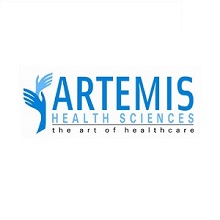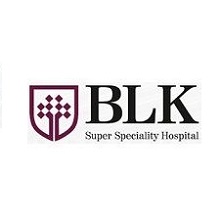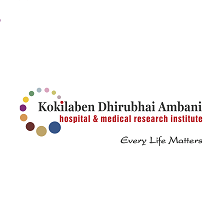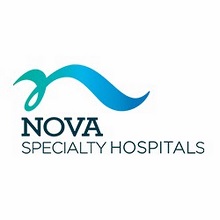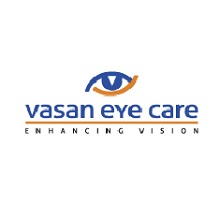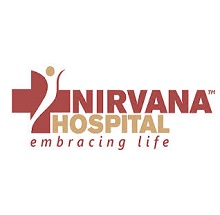Medical Treatments
- Urology Treatment
- Bariatric Obesity Surgery
- Oncology Cancer Treatment
- Cardiology
- Cosmetic Plastic Surgery
- ENT-Head And Neck Surgery
- Infertility Or IVF Treatment
- Joint Replacement Surgery
- Spine Surgery
- Organ Transplant
- Neurology
- Orthopedic Surgery
- Nephrology
- Stem Cell Therapy
- Endocrionology Or Diabetes
- 3D Liposuction Abdomen Lower Back
- Breast Lifting Implant
- Paediatrics Child Neonate
- Robotic Surgery
- Dentistry Dental Implant
- Gynaecology
- Pulmonology /Chest /Respiratory
- Dermatology And Venerelogy
- Opthalmology Eye Treatment
- Gastroenterology Or Hepatology
- Cyber Knife Radiosurgery
- Bone Marrow Surgery Transplant

Endocrionology Or Diabetes
Diabetes: Symptoms, Types and Treatments
What is Diabetes?
Diabetes, often referred to as diabetes mellitus, is an abnormal metabolic process in which the body doesn’t produce insulin or produces insufficient insulin. Insulin is produced by pancreas which converts food into glucose, which is absorbed by the cells of the body to derive energy for various metabolic processes. It balances the blood sugar levels too. If sugar level is low then the condition is called hypoglycemia and elevated levels are called hyperglycemia. In prediabetes condition, the Glycated hemoglobin levels (HbA1C levels) reflect average blood sugar levels of past two to three months. If medicines or proper care is not taken then over time the condition may progress and it may damage blood vessels or nerves, leading to complicated conditions like heart disease, stroke, kidney disease, blindness, dental disease, and amputations. It can also affect weight, mobility, age, pregnancy and give rise to depression.
There are three types of diabetes; Type 1 Diabetes, Type 2 Diabetes, and Gestational Diabetes. Some are affected by both ‘type 1 and type 2 diabetes’.
Causes
Medical scientists are unable to find out the initiation of this disease but correlate with genetics, pancreatic diseases, certain drugs and sedentary lifestyle. Lack of insulin production by the pancreas leads to Type 1 diabetes. It occurs in individuals from teenage to late thirties. In patients with type 2 diabetes the pancreas produce insufficient amount of insulin which is inadequate for the various functions of the body or the cells become insulin-resistant and do not respond to the insulin produced by the pancreas. Gestational diabetes develops only when there is hormonal and metabolic changes during pregnancy. Placenta creates certain hormones and nutrients to sustain embryo or pregnancy. Changes in hormones make body cells insulin resistant. The imbalance in pancreatic action of producing insulin leads to too little absorption and excess of glucose in the blood leading to Gestational diabetes. It occurs more often to the women with a family history of diabetes and in the ethnic groups like African Americans, Hispanic Americans and American Indians.
Diabetes Symptoms
Symptoms of diabetes are excessive urination, blurred vision, feeling hungry& thirsty all the time, fatigue, sudden weight-gain or weight loss, numbness & tingling in hands & feet, slow-healing body wounds, male sexual dysfunction. Insufficient insulin declines filtration of the glucose by the kidneys back to the blood and extraction of excess water from the blood increases to dilute glucose. This process frequently fills up the bladder, thus increasing the frequency of urination. This process also leads to dehydration i.e. excessive craving for water. When there is reduction in insulin formation the glucose doesn’t get absorbed in the cells. Thus, body becomes energy starved which makes patient feel tired and weak. In type 1 diabetes (autoimmune disease) where cells don’t receive enough glucose tends to cause breakdown of muscle tissue and fat for energy. Gradually, patient starts losing weight.
Types
Type 1 Diabetes
Type 1 diabetes is an autoimmune disease in which the body’s immune system i.e. the T cells attack and destroy the beta cells of the pancreas. The gland produces little or no insulin, thus affecting the metabolism of the whole body. It is very common in children and young adults. In this condition the patient needs to take insulin regularly all his life. Various environmental factors like virus, food and toxins also contribute in the development of type 1 diabetes. If type 1 is not treated it can lead to life-threatening diabetic coma.
Type 2 Diabetes
Prediabetes condition can lead to type 2 diabetes. Type 2 diabetes develops gradually. The body’s ability to produce insulin declines leading to insufficient or low production of insulin, thus affecting the metabolism. Being overweight along with genetic, environmental factors, age, previous history of gestational diabetes, ethnicity and physical inactivity is strongly connected to the development of type 2 diabetes. This type has affected almost 95% of diabetic population. Type 2 Diabetes can be prevented if a person follows proper physical exercise & diet and maintains normal body weight.
Tests & Treatments
Type 1 or type 2 diabetes is diagnosed with the test called fasting plasma glucose test which is done in the morning on an empty stomach. Diabetes is diagnosed if:
Fasting blood sugar value is 126 mg/dL or more or Random sugar test shows value greater than 200 mg/dL or HbA1c test is equal to or greater than 6.5 percent or two-hour oral glucose tolerance test shows value over 200 mg/dL. All these tests are done in pathology clinic or doctor’s office. The doctor detects diabetes based on plasma glucose values.
Diabetes is not a self-curing disease. After all the tests, the doctor will make a proper treatment plan according to the type and severity of diabetes. Close check on blood sugar levels with a combination of medications, exercise and diet is prescribed by the doctor. This deadly disease can effectively be controlled by proper insulin administration, pharmacological treatment and regular exercise maintaining an optimum weight. Patients should strictly follow no-sugar diet, smoking cessation, limited red meat consumption and saturated fat. Insulin injections or continuous pump are used to treat type 1 diabetes. Insulin comes in 4 types: Rapid-acting, Regular or short-acting, Intermediate-acting and Long-acting. For type 2 diabetes, the doctor may prescribe you insulin or medicines to bring blood sugar levels back to normal.
Surgery
People with type 1 diabetes having severe complications may occasionally undergo pancreas transplant or kidney transplant. For overweight patients, bariatric or weight loss surgery helps in maintaining normal blood glucose levels. Dialysis is required for those patients whose kidneys fails in its process of removing waste from blood. Dialysis also helps in maintaining and controlling blood pressure.
AVAN MediTour aspires to bring forward best & cost effective medical facilities to international patients. We are tied up with various hospitals and doctors offering optimal solutions on diabetes. We provide 24/7 online assistance and train our patients with latest medical tourism trends.
Inclusions and Exclusions
INCLUSIONS
1. Airport Pick-up on Arrival in India2. Airport Drop on Departure from India
3. Cost of initial Evaluation and Diagnosis
4. Cost of the Surgery or Treatment
5. Cost of applicable one implant/prosthesis
6. OT Charges and Surgeon’s Fees
7. Consultation Fees of the Doctor for the concerned specialty
8. Nursing and Dietician’s Charges
9. Hospital Stay for the specified number of days in the respective room category as mentioned against the package
10. Hospital stay includes stay of the patient and one attendant for the duration of stay mentioned against the package
11. Routine investigations and medicines related to the surgery or treatment.
12. Food for the patient and the attendant for the specified number of days as mentioned against the package
13. Travel Assistance/Medical Visa Invite/FRRO/ Visa Extensions
14. Assistance in finding right budget hotel or guest house accommodation.
15. Issuing Invitation Letter for Medical Visa.
EXCLUSIONS
1. All expenses for stay beyond the specified number of days2. Cross Consultations other than the specified specialty
3. Use of special drugs and consumables
4. Blood products
5. Any other additional procedure
6. Post discharge consultations, medicines, procedures and follow-ups
7. Treatment of any unrelated illness or procedures other than the one for which this estimate has been prepared
8. Travel Expenses and Hotel Stay
DISCLAIMER:
* Quote given is ONLY for the treatment in the hospital and DOES NOT include food as well as the accommodation cost outside the hospital.
* The quote may vary in case of co-morbidities, which are associated medical conditions and an extended stay.
* The treatment suggested is as per the information and reports provided to us. The line of treatment may differ according to the additional and comprehensive details asked by our consultants.
* The prices quoted are only indicative and may differ. They can be confirmed only after the patient is assessed by a doctor.
* The complete treatment cost has to be deposited in advance after the finance counseling for the patient is done at the hospital




